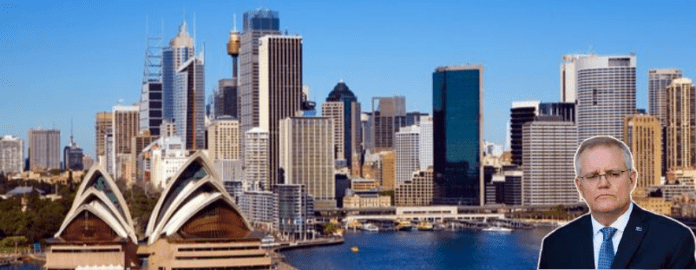| Translate This News In |
|---|
CANBERRA/SYDNEY: Australian Prime Minister Scott Morrison stated on Friday that an 18-month travel ban on Australians will be lifted as of next month, lifting one of the most stringent COVID-19 restrictions in the world.
The implementation of home quarantine in Australia’s eight states and territories will be connected to the reopening of the international border for citizens and permanent residents, Morrison said, implying that some parts of the Australia will reopen sooner than others.
The plan’s initial phase will be focus on allowing citizens and permanent residents to leave Australia, with subsequent modifications expected to allow international travelers to visit the country.
“It’s time to give Australians their lives back. We’ve saved lives,” Prime Minister Scott told during a televised media conference. “We’ve saved livelihoods, but we must work together to ensure that Australians can reclaim the lives that they once had in this country.”
In March 2020, Morrison banged the international border shut. Only a small number of people have been allowed to leave the country since then for vital business or humanitarian reasons.
Citizens and permanent residents are now permitted to come home from foreign lands, subject to quota limitations and a 14-day quarantine period in a hotel at their own cost.
For economic objectives, a few high-profile exemptions have been allowed, such as Hollywood stars filming movies and TV series.
Prime Minister Scott the first home quarantine systems should be operational by November, but states and territories will establish their own timelines as per conditions.
He has already stated that when the national vaccination rate for those aged 16 and up reaches 80%, which is expected by the end of next month, he wants all state and international crossings reopened.
A Delta variant-driven breakout, meanwhile, that has paralyzed Sydney, Melbourne, and Canberra for weeks, has prompted a divide among state and territory officials.
Some governors in virus-free locations of the Australia, have told that they will not go to follow the federal plans.
Australians who are properly vaccinated would be free to visit internationally and return home country Australia after a seven-day quarantine, according to the plan outlined on Friday.
Those who have not been fully vaccinated will have to stay in a hotel for 14 days when they return back at their own cost.
As a result, Qantas Airways (QAN.AX) has pushed out the start of foreign flights by more than a month, to Nov. 14.
The airline will fly three weekly return flights from Sydney to London and Los Angeles, with more scheduled as demand dictates.
Prime Minister Scott Morrison said his government has been working toward quarantine-free travel with other countries such as New Zealand when it was “safe to do so.”
And according to the Australian government source, plans are being considered to allow international visitors to come into the country, but no timetable is available at this time.
APPROVED COVID-19 VACCINES
Australia’s strong border control is credited with limiting the pandemic’s impact on the country to a minimum, with little over 107,000 cases and roughly 1,300 deaths.
Officials confirmed 2,084 new cases on Friday, predominantly in the states of New South Wales and Victoria, a slight decrease from the previous day.
Officials updated the country’s list of recognized COVID-19 vaccines to promote the reopening of borders and allow more Australians to return.
When foreign travelers are allowed to enter the country, the adoption of China’s Sinovac vaccine is likely to bolster Australia’s crucial international education sector.
Prior to the epidemic, Chinese students, many of whom are thought to have gotten the Sinovac vaccination, made up a third of a sector worth A$35 billion ($25.2 billion) every year to Australia’s A$2 trillion economy.
Covishield, a Serum Institute of India-produced version of AstraZeneca’s vaccine, will be added to the approved vaccine list, joining the three vaccines now used in Australia: Pfizer (PFE.N), Moderna (MRNA.O), and AstraZeneca (AZN.O) (AZN.L).


















